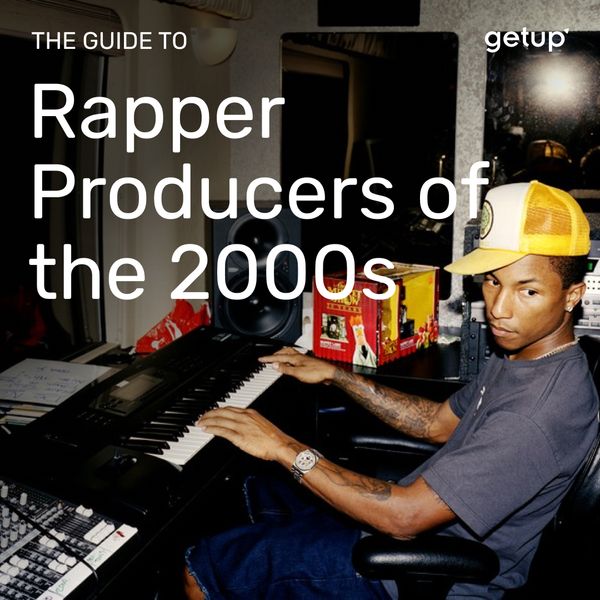A transitional period, the 2000s announced the emergence of a more hybrid rap. In the United States, one could find at the same time the boom-bap techniques popularized by the East Coast (Havoc, Evidence, The Alchemist...), those in love with soul or jazz samples on percussive beats; the synthetic productions and melodies mixed with the vibrating bass of G-funk and its hypnotic grooves (Dj Quik, Daz Dillinger...); the Dirty South’s international imposition with artists like Lil' Wayne, Three 6 Mafia or the rapper-producer Z-RO - and public underdogs yet esteemed industry heavyweights like Mike Dean. At the same time, in England, grime was emerging through figures such as Dizzee Rascal and Skepta who self-produced.
At the end of this era of experimentation, where the worst rubs shoulders with the best, innovations enriched hip-hop and opened new perspectives. The "Chipmunk soul" particularly marked the year 2000: in reference to Alvin and the Chipmunks, this process consists in taking a vocal sample and speeding it up, making the voice higher... Popularized by RZA with "For Heaven's Sake", in the Wu-Tang Forever album (1997), the "Chipmunk Soul" can be found in many productions of the 2000s, from Evidence to The Alchemist, through the iconic "Make Her Say" produced by Kanye West on Kid Cudi's Man Of The Moon album.
The work of J Dilla, who died shortly after the release of his album Donuts (2006), also marked hip-hop of those years by teaching artists to humanize their drum machines. Instead of using the quantizer on his MPC 3000 - a system that automatically sets each kick to the beat - J Dilla played his drum elements throughout his tracks, instead of repeating them. The Detroit artist has gone beyond the loop rule that was, until then, a staple of beatmaking, managing to give his productions a constant groovy feel.
This artistic process has inspired the work of other artists, from Black Milk to Pharrell Williams. Using samplers to sample, filters to vary the intensity of certain frequencies, synthesizers like the Moog to make the bass oscillate..., producers use their machines as instruments and tune them according to their artistic direction. Thus MF Doom will sample obscure songs or anime clips that he will cut a few bars to to let the bass and the drums express themselves. Moreover the bass was used as a kick and his productions integrated two snares, one of which was cut, in order to imitate a broken record...
If the rapper-producers are rarely the best at the microphone (with a few exceptions like Eminem, Skepta and others...), their tracks are largely above average, not being forced to please an artist or a label by proposing the recipe of the moment. The paragon of rappers-producers without concession as Aesop Rock, Juicy J and Madlib. The latter did not like his deep voice so he chose to slow down his flow, and then pitched his voice as if it was under helium, thus giving birth to an alter ego, Quasimoto. A model.
Rapper Producers of the 2000s
The rappers who produce their own tracks (or vice versa) often have the greatest creative strength. Here’s a first edition of those rare polymaths of the 2000s.
Share






.jpg)
.jpg)
.jpg)